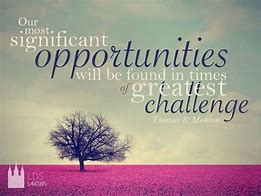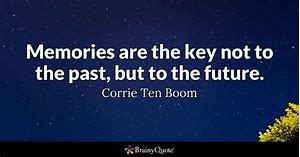Author Gretchen Rubin’s mother told her, “The things that go wrong often make the best memories.” Upon reading this quote, my mind immediately brought up two of my favorite memories and true to what Rubin’s mother said, all three involve me when things didn’t go according to plan. Let’s look at these events and then look at why they are some of my best memories.
MEMORY #1: HOT, COLD, GOOD, and BAD
When I was in ninth grade, I was part of my school’s team on the Pittsburgh, PA, USA television show “Junior High Quiz.” Questions were posed by moderator Ricki Wertz and the sooner one hit the buzzer and responded with a correct answer, the higher the points scored. The score clock was ticking away after the question, “Name the four taste sensations.” I kept telling myself that I did, indeed, know the answer to this, so I eventually hit the buzzer. I proudly responded, “Hot, cold, good, and bad.”
Ms.Wertz paused for a moment before announcing that that was not correct. (The correct answer is sweet, sour, salty, and bitter.) I don’t know what was worse. Watching the show on television and reliving the moment or going to school on Monday morning after the show aired, being teased my classmates, or having the lesson in my home economics class that Monday on that very subject. I did survive this situation by making light of it and laughing at myself. And, by laughing at myself first, people were eventually laughing with me and not at me.
MEMORY #2: WILL SHE EVER RETURN?
My cousin Adam, after playing football at The Pennsylvania State University, went on to play a preseason with the New York Giants.
His mom and I traveled to watch him play a game and the next day, we toured New York City with him. After a great day of just being a tourist in that great city, we were at a subway station to catch our last ride home.
While I had had some trouble throughout the day when swiping my MetroCard, I never had an issue getting through the turnstiles. That is, until the last ride. Adam and his mom breezed through the turnstile. I swiped my card, got the ‘go’ signal, and pushed on the turnstile. It started to move then locked up on me.
I got back in line, swiped again, and am told ‘insufficient funds.’ OK. I purchase another MetroCard for one ride, swipe it, push on the turnstile, start to walk through, and it locks up on me again! Back to the machine to get another card. Machine isn’t taking bills. YIKES! Thankfully, there is a machine that takes credit cards. Using that, I reload my MetroCard.
I call to Adam and his mom and ask them to pull on the turnstile as I push (to counteract whatever I am doing wrong). Card swipe is successful, but Adam and his mom pull too soon and when I push, the door locks, again! Back to the machine that takes credit cards; more money on the card. The swipe is successful and yes, finally, I successfully get through the door!
Even though frustration, anger, stress – many of the emotions we feel when dealing with change were “knocking on my door” – I maintained my smile and was laughing at the situation, so those emotions were never ever to cross the threshold.
Why do the things that go wrong often make the best memories? Scientifically, there are many studies that suggest that challenging or negative experiences are more likely to be remembered than positive ones. Laura Carstensen, a psychology professor at Stanford University, proposes that attention to challenging or negative events has adaptive value. She offers, “…there’s a lot of information to be learned in difficult or dangerous situations, and that our brains can apply that knowledge when a similar situation presents itself in the future.”
In most experiences we find challenging or perceive to be negative, there is an emotional overlay to them. In my examples, embarrassment, frustration and anger were all there under the surface. Experts say that a normal function of emotion is to, “…enhance memory in order to improve recall of experiences that have importance or relevance for our survival. Emotion acts like a highlighter that emphasizes certain aspects of experiences to make them more memorable.”
How each of us interprets our memories, especially emotional ones, is what determines whether we consider the ones in which things go wrong the best memories. Those who look for the blesson (blessing and lesson; the opportunities that might be hidden in challenges and struggles) in every experience are more likely to link positive attributes to the experience, thereby categorizing them as best memories.
For me, among other things, I have been able to see the humor in many of the challenging experiences in my life. I have provided two here but in other blog posts and in my book, Facing the Sunshine and Avoiding the Shadows: Strategies to Stay Sane and Positive Amid Change, I provide many examples of experiences in which something went wrong but how the learning opportunity within each ended up making all of these experiences noteworthy enough to be ones that I fondly recall.
Randy Pausch, Carnegie Mellon University professor who battled pancreatic cancer said, “We cannot change the cards we are dealt just how we play the hand.” Pausch exemplified the power of positive energy and used it to deal with, accept, and make the best of his situation. When our best memories can be of experiences when things go wrong then we have mastered playing our hand well. We are able to respond to situations in ways that move us to seek understanding in them, put and keep things in perspective, and move us forward. So, we need to take the hand we are dealt, make something positive happen with it, and begin to make some best memories.














Dr. Johnen. great reminder to vie each experience as an opportunity to learn. simple truth and yet, we all need reminded at times. loved the personal examples.